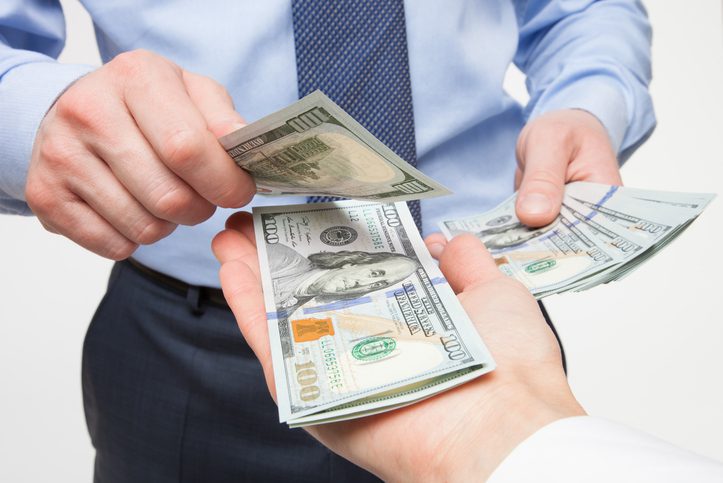 When an Oklahoma judge ordered Johnson & Johnson to pay $572 million for causing that state’s opioid crisis, business leaders were understandably distressed. Not only did J&J have a tiny share of the market—estimated at around 1 percent—but the state didn’t present evidence of a single physician who prescribed its products improperly because of J&J’s marketing tactics. The company recently settled with two Ohio counties accusing it on the same grounds, hoping to push off federal multi-district litigation.
When an Oklahoma judge ordered Johnson & Johnson to pay $572 million for causing that state’s opioid crisis, business leaders were understandably distressed. Not only did J&J have a tiny share of the market—estimated at around 1 percent—but the state didn’t present evidence of a single physician who prescribed its products improperly because of J&J’s marketing tactics. The company recently settled with two Ohio counties accusing it on the same grounds, hoping to push off federal multi-district litigation.
Watching the charges play out, it’s reasonable to ask: If J&J can be held liable for creating a “public nuisance” by selling a perfectly legal product under a government-approved label, who isn’t liable? Alcohol kills tens of thousands of people a year, and cell phones probably aren’t far behind. Distracted driving is a major cause of death on the nation’s roads.
Now that they’ve won in Oklahoma, ever-inventive trial lawyers are sure to test the public nuisance theory with cell phones, alcohol and other products, as they’ve already done with guns, lead paint and global warming. But history suggests they won’t get far. Congress responded to a wave of nuisance litigation against gun manufacturers in 2005 with a law barring most claims over crimes committed with their products. And federal judges on both coasts have rejected public nuisance lawsuits against big oil companies.
“As a tort expert, I know that sometimes something comes along that society gets in an uproar about, and courts relax traditional standards to assign blame,” says Victor Schwartz, author of a popular text on tort law and co-chair of the Public Policy Practice at Shook Hardy & Bacon in Washington. “But right now (the Oklahoma opioid) opinion looks confined to what was before it.”
The lesson business executives should take from opioid litigation is that sometimes a product is too successful for its own good, Schwartz says. And when that happens, courts can get awfully creative at finding ways to hold companies liable for the harms their products cause, regardless of what most people would consider to be the normal standards of tort law.
That’s what happened with asbestos, a miracle substance that saved untold lives during World War II as a fireproofing material but also had the unfortunate side effect of causing the deadly cancer of the chest lining known as mesothelioma. Dozens of companies have been driven into bankruptcy because they handled the stuff at some point, often with little or no evidence they did anything wrong.
Now it’s the pharmaceutical industry’s turn in the grinder. Schwartz’s advice to clients who are troubled by what happened to J&J is to take a hard look at their own products and the potential liability that might arise from them. One danger sign is a niche product that is suddenly selling like hotcakes—like fenfluramine and phentermine, once-ignored drugs that, when combined, became fen-phen, a wildly popular weight-loss cocktail that generated billions of dollars of liability after doctors learned it also caused pulmonary hypertension and heart valve abnormalities.
The biggest potential liability is over failure to warn. For that, Schwartz recommends companies hire tort lawyers to examine proposed warning labels for flaws worth suing over. He gives his clients an example from a long-ago trip to the Baltimore Aquarium, where he observed a strange thing: If a shark passed up a piece of meat that was thrown into the tank, all the other sharks did too.
“If you get a plaintiff lawyer who okays a warning, his brothers and sisters are very unlikely to bring a claim,” says Schwartz, laughing. It’s understandable for executives to hate trial lawyers, he adds, but “hate isn’t a good emotion. If hiring a plaintiff lawyer can help you, why not?”

Chief Executive Group exists to improve the performance of U.S. CEOs, senior executives and public-company directors, helping you grow your companies, build your communities and strengthen society. Learn more at chiefexecutivegroup.com.
0

1:00 - 5:00 pm
Over 70% of Executives Surveyed Agree: Many Strategic Planning Efforts Lack Systematic Approach Tips for Enhancing Your Strategic Planning Process
Executives expressed frustration with their current strategic planning process. Issues include:
Steve Rutan and Denise Harrison have put together an afternoon workshop that will provide the tools you need to address these concerns. They have worked with hundreds of executives to develop a systematic approach that will enable your team to make better decisions during strategic planning. Steve and Denise will walk you through exercises for prioritizing your lists and steps that will reset and reinvigorate your process. This will be a hands-on workshop that will enable you to think about your business as you use the tools that are being presented. If you are ready for a Strategic Planning tune-up, select this workshop in your registration form. The additional fee of $695 will be added to your total.

2:00 - 5:00 pm
Female leaders face the same issues all leaders do, but they often face additional challenges too. In this peer session, we will facilitate a discussion of best practices and how to overcome common barriers to help women leaders be more effective within and outside their organizations.
Limited space available.

10:30 - 5:00 pm
General’s Retreat at Hermitage Golf Course
Sponsored by UBS
General’s Retreat, built in 1986 with architect Gary Roger Baird, has been voted the “Best Golf Course in Nashville” and is a “must play” when visiting the Nashville, Tennessee area. With the beautiful setting along the Cumberland River, golfers of all capabilities will thoroughly enjoy the golf, scenery and hospitality.
The golf outing fee includes transportation to and from the hotel, greens/cart fees, use of practice facilities, and boxed lunch. The bus will leave the hotel at 10:30 am for a noon shotgun start and return to the hotel after the cocktail reception following the completion of the round.